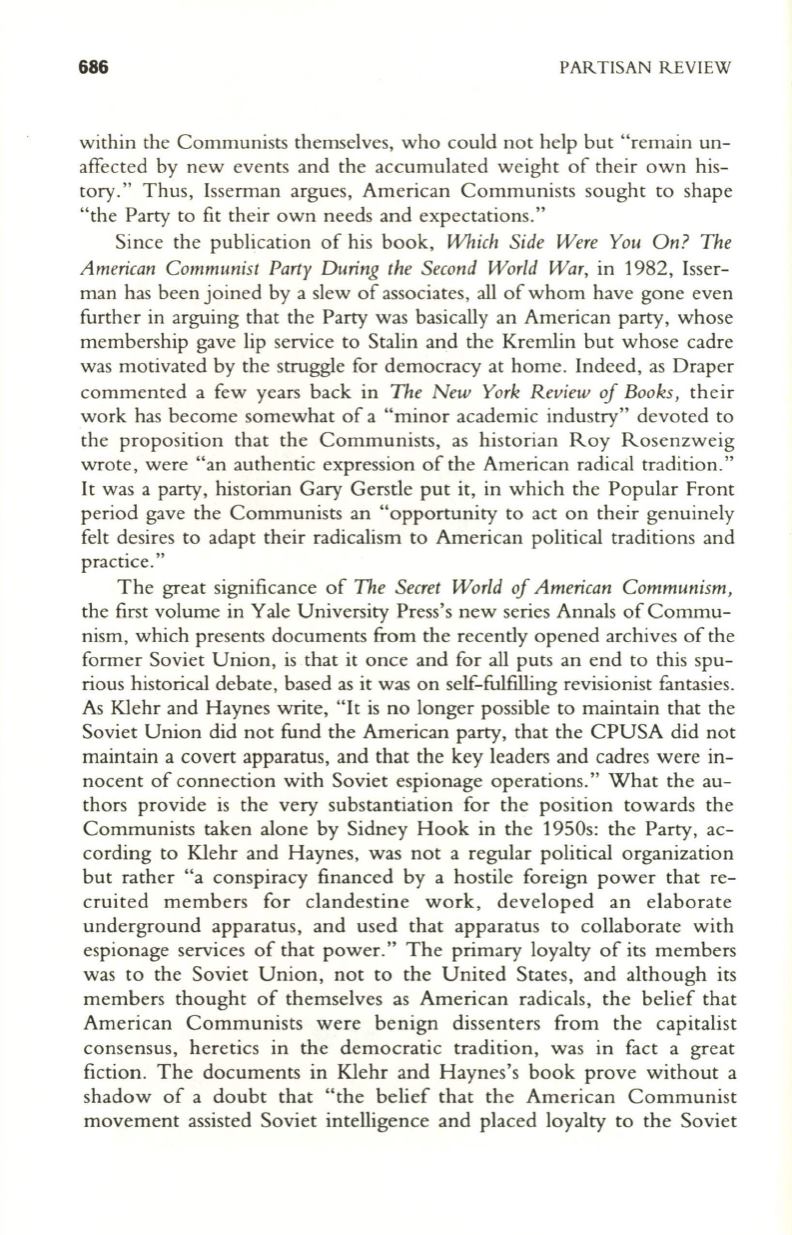
686
PARTISAN REVIEW
within the Communists themselves, who could not help but "remain un–
affected by new events and the accumulated weight of their own his–
tory." Thus, Isserman argues, American Communists sought to shape
"the Party to fit their own needs and expectations."
Since the publication of his book,
Which Side Were You On? The
American Communist Party During the Second World War,
in 1982, Isser–
man has been joined by a slew of associates, all of whom have gone even
further in arguing that the Party was basically an American party, whose
membership gave lip service to Stalin and the Kremlin but whose cadre
was motivated by the struggle for democracy at home. Indeed, as Draper
commented a few years back in
The New York Review oj Books,
their
work has become somewhat of a "minor academic industry" devoted to
the proposition that the Communists, as historian Roy Rosenzweig
wrote, were "an authentic expression of the American radical tradition."
It
was a party, historian Gary Gerstle put it, in which the Popular Front
period gave the Communists an "opportunity to act on their genuinely
felt desires to adapt their radicalism to American political traditions and
practice. "
The great significance of
The Secret World oj American Communism,
the first volume in Yale University Press's new series Annals of Commu–
nism, which presents documents from the recently opened archives of the
former Soviet Union, is that it once and for all puts an end to this spu–
rious historical debate, based as it was on self-fulfilling revisionist fantasies.
As Klehr and Haynes write,
"It
is no longer possible to maintain that the
Soviet Union did not fund the American party, that the CPUSA did not
maintain a covert apparatus, and that the key leaders and cadres were in–
nocent of connection with Soviet espionage operations." What the au–
thors provide is the very substantiation for the position towards the
Communists taken alone by Sidney Hook in the 1950s: the Party, ac–
cording to Klehr and Haynes, was not a regular political organization
but rather "a conspiracy financed by a hostile foreign power that re–
cruited members for clandestine work, developed an elaborate
underground apparatus, and used that apparatus to collaborate with
espionage services of that power." The primary loyalty of its members
was to the Soviet Union, not to the United States, and although its
members thought of themselves as American radicals, the belief that
American Communists were benign dissenters from the capitalist
consensus, heretics in the democratic tradition, was in fact a great
fiction . The documents in Klehr and Haynes's book prove without a
shadow of a doubt that "the belief that the American Communist
movement assisted Soviet intelligence and placed loyalty to the Soviet


